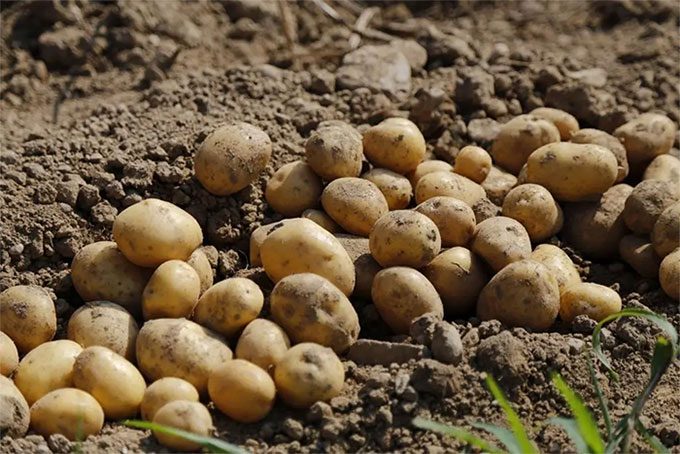Researchers at Tyumen State Medical University (Russia), in collaboration with an international team, have harnessed small potatoes to create highly applicable silver nanoparticles. This discovery is expected to revolutionize various fields from medicine to agriculture.
The findings from the Tyumen State Medical University researchers were published in the journal Heliyon. They revealed that the nanoparticles derived from white potato skins possess strong antibacterial properties and cytotoxic effects, making them a promising tool in the fight against pathogenic microorganisms.

Scientists utilize small potatoes to create highly applicable silver nanoparticles. (Illustrative image: Eurofresh Distribution)
Silver nanoparticles have high antibacterial effects. They are used to control bacterial growth in dentistry, surgery, wound treatment, burns, and more. The importance of metal nanoparticles, particularly silver, is well recognized in various fields such as microelectronics and biomedicine.
However, the conventional processes for producing these nanoparticles, which primarily involve chemical and physical methods, are not only energy-intensive and costly but also environmentally detrimental.
This prompted researchers at Tyumen State Medical University to explore biosynthesis, a more sustainable and cost-effective alternative that aligns with global efforts toward green technologies.
This new biosynthesis process was developed by the Tyumen State Medical University research team in collaboration with scientists from Azerbaijan, China, and Turkey. They utilized the starch found in white potato skins, an abundant agricultural byproduct that is often overlooked.
Associate Professor Beylerli Aferin Tagi kyzy at Tyumen State Medical University, who participated in the research, told Sputnik News (Russia) that this method not only effectively synthesizes silver nanoparticles but also ensures they possess the necessary mechanical, structural, and therapeutic properties.
The researchers tested the efficacy of these nanoparticles and obtained promising results showing that they combat several antibiotic-resistant bacteria such as Staphylococcus aureus and Escherichia coli, as well as Candida albicans – a fungus that causes candida infections and hospital-acquired infections.
Furthermore, the researchers at Tyumen State Medical University believe that the applications of these silver nanoparticles extend beyond medicine. Their low production cost and effectiveness offer potential in agriculture, particularly in protecting crops from bacterial and fungal diseases.
This groundbreaking research not only highlights the potential of agricultural waste in scientific innovation but also sets a new standard in the production of sustainable and cost-effective nanoparticles. It marks a significant advancement in green technology and opens countless possibilities for future applications in both healthcare and agriculture.




















































